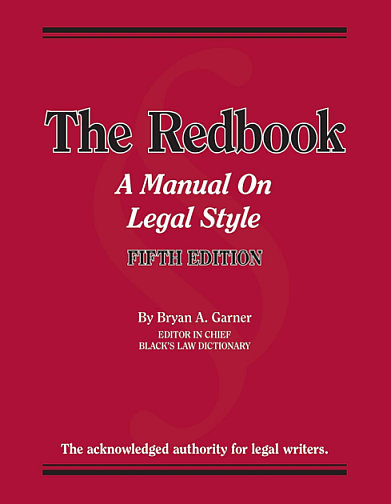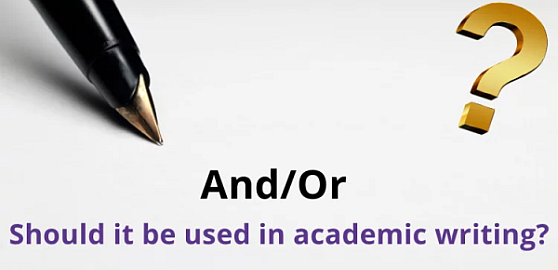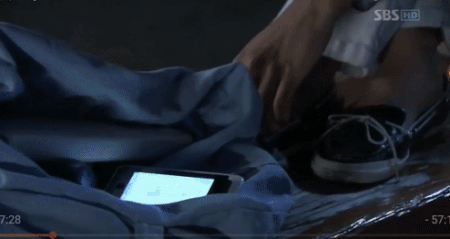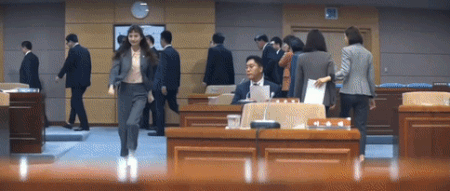1
Lounge / English grammar proficiency test for Journalism and Mass Comm majors?
« on: April 22, 2024, 07:57:17 AM »
Index: A. Introduction: Carabao English of journalism interns; Poor grammar erodes media credibility (1998 American Society of News Editors study); B. Philippine media and bad grammar; college entrance requirements for Journalism majors; C. The University of North Carolina (UNC) Hussman School of Journalism and its famous grammar test; Pros and cons of requiring Journalism majors to pass either an entrance exam or an exit exam on English grammar proficiency
A. Introduction: Carabao English of journalism interns; Poor grammar erodes media credibility (1998 American Society of News Editors study); Most introductory college news writing professors spend the first third of the semester reviewing basic grammar rules; College writing instructors say students do not understand basic grammar concepts
1. From "No more 'carabao" English, please!" by Tita Valderama (The Manila Times, 2018) at https://www.manilatimes.net/2018/02/12/opinion/analysis/no-carabao-english-please/379638
"In the five years that I’ve been handling the journalism internship of the Manila Times, I have encountered student applicants who presented impressive resumes but could not express themselves in English and could hardly write a sensible essay on current issues. The problem is not substance but basic English grammar. And these students would soon be graduating in courses like AB English, Communication, and Journalism. Sometimes I wonder aloud how they passed elementary school when English is a subject from the primary years, or even pre-school."
2. Poor grammar erodes media credibility (1998 American Society of News Editors study)
From "Taking our Measure" (Washington Post, 1998) at https://www.washingtonpost.com/archive/opinions/1998/12/20/taking-our-measure/1c6fe097-efed-48d9-bc03-a845a9bac047/
"The [American Society of Newspaper Editors] study, 'Why Newspaper Credibility Has Been Dropping,' offers six major findings about 'the underlying causes of the disconnect' between journalists and their audiences.' What the 3,000 respondents from around the country had to say is pretty much what Post readers have been telling me in calls, letters and e-mail messages."
"Finding No. 1: 'The public sees too many factual errors and spelling or grammar mistakes in newspapers. Twenty-one percent of readers surveyed complained that they come across mistakes in spelling and grammar every day."
The study titled "Accuracy Matters: A Cross-Market Assessment of Newspaper Error and Credibility" (September 2005 Journalism & Mass Communication Quarterly) says:
"... frequency of errors was cited as a major reason why the public is increasingly skeptical of what it reads. Also drawing from focus groups, ASNE researchers posit: 'Even seemingly small errors feed public skepticism about a newspaper’s credibility. Each misspelled word, bad apostrophe, garbled grammatical construction, weird cutline and mislabeled map erodes public confidence in a newspaper’s ability to get anything right.'"
[Boldfacing supplied]
3. From “Spelling and Grammar – Their Importance to Journalism: What Journalism Schools Are Doing” Paper presented at the Annual Meeting of the Association for Education in Journalism (Ottawa, Ontario, August 16-19, 1975) at https://files.eric.ed.gov/fulltext/ED120738.pdf
"With increasing enrollments in journalism, many journalism instructors contend that problems of spelling, grammar, usage, and punctuation are particularly acute. Some of the questions raised at recent gatherings include: Are formal rules of English grammar dying? Is proper punctuation mere pedantry? What can journalism schools do about grammar and spelling problems?"
4. From "The Journalism Writing Course: Evaluation of Hybrid vs. Online Grammar Instruction" by Jensen Moore, University of Oklahoma, and Khristen Jones (Journalism & Mass Communication Educator · March 2014):
"While recent research suggests the skills needed to survive in today’s multimedia journalism industries have changed, one thing remains the same – the need for skills in grammar, spelling and punctuation. In the early 80s and 90s journalism schools were instructed to increase the number of hours spent teaching these skills as students often entered the work force unprepared due to lack of emphasis journalism schools placed on grammar and writing.
"Almost two decades later this trend has continued. The 2011 American Society of News Editors Industry Challenges and Opportunity report posited both print and online news editors felt writing quality and editing were 'cornerstones' of what journalists do. However, employers currently state new graduates do not have basic grammar, punctuation or writing skills and seem to believe the fault for this lies within universities.
"In addition, recent studies indicate instructors and journalists agree grammar and writing are the most
important skills needed, while most journalism employers stress these skills are most important when making hiring decisions.
"A 2003 ACT National Curriculum Survey found, in general, college professors believed grammar and writing skills to be of high importance for students entering college, while high school teachers found the same skill sets to be least important. Stone suggested the disparity in emphasis on writing between high school and college causes most introductory college news writing professors to
spend the first third of the semester reviewing basic grammar rules, which detracts from the true purpose of the course. Thus, grammar and grammar instruction remain a large problem for many
journalism schools, even though these skills continue to be viewed as keys 'to success in college and beyond.' This creates a problem for students when they transition from journalism school into the workforce."
[Boldfacing supplied]
5. From "I'll Take Commas for $200": An Instructional Intervention Using Games to Help Students Master Grammar Skills by Sue Burzynski Bullard and Nancy Anderson (February 2014 Journalism & Mass Communication Educator 69(1):5-16):
"Effective writing requires mastering grammar. For journalists, this mastery is critical because research shows poor grammar erodes media credibility. College writing instructors say students do not understand basic grammar concepts, and greater numbers of students are enrolling in remedial writing classes. This quasi-experimental mixed methods study examines whether using games to teach basic grammar skills helps college students understand and retain grammar concepts. It also examines student perceptions of learning."
6. From "Grammar and cognitive processing of news articles: Exploring dual processing theories" by Alyssa Appelman (University of Kansas, July 2009):
"This study considers the impact of grammatical errors on cognitive processing and subsequent evaluation of news articles. It begins with an examination of the Elaboration Likelihood Model, the Heuristic-Systematic Processing Model, and grammar-related research. An experiment then tests the impact of grammatical errors on measures of cognitive processing. Participants read articles with varying levels of grammatical error and answer questions to reveal cognitive processing. The results show that grammatical errors in news articles are associated with high mental effort, low retention, and low perceived credibility. These measures indicate that grammatical errors are associated with deep processing of news articles. This study recommends that journalists focus more of their attention on fixing grammatical errors, as doing so will provide a better service to their readers."
[Boldfacing supplied]
7. From "Assessing Student Written Communications Skills: A Gateway Writing Proficiency Test for Aspiring Journalism Majors." by Brocato, Furr, and Horton, College Student Journal (Vol. 39, Issue 3)
"Faculty at this rural open-admissions university became increasingly concerned each semester about the inability of many journalism majors to write competently. This poor writing was evident in correctness, content, and coherence."
8. From "Journalism skills you need to get into the sector" at https://www.brightnetwork.co.uk/career-path-guides/journalism-publishing/journalism-skills-you-need-get-sector/
"Communication skills: It doesn’t matter if you’re a broadcast Journalist, reporter or magazine journalist, any journalism role requires top-notch verbal and written communication skills. This will be needed for interviews, finding new sources and working in a fast-paced newsroom."
"Knowledge of English language and grammar: Journalists spend a lot of time writing and are expected to edit their work to a high standard."
9. From "Journalism News Writing Skills: Grammar and Style Rules" at https://www.universalclass.com/articles/writing/news-writing-grammar-and-style-rules-in-journalism.htm
"Before you can be a good journalist, you must first be a good writer. This means you must know how to put words together so that they make sense, flow, and are correctly punctuated. Another important element of news writing is grammar and style. Grammar is the structure of the writing that takes into account the syntax and linguistics, while style is the writing's distinctive appearance and sound. Grammar is decided according to hard and fast rules, but style is more personal and puts your mark on the piece of work ...
"There are few things that will turn a reader away quicker than poor writing. Grammar is the most basic example of this: When words are misspelled, or there is a mismatch between nouns and the proper tense of verbs, or you have used punctuation incorrectly – you are going to lose your audience faster than if you wrote something that offended them on a personal level. Why? Because they'll never get to a point where they will read the content. Poor grammar marks you as an amateur, and you won't be long for the newsroom with that label!"
B. Philippine media and bad grammar; college entrance requirements for Journalism majors; Advanced English courses in DepEd's Special Program in Journalism
1. This forum has a section titled "My Media English Watch" at https://josecarilloforum.com/mediawatch.html which is a "dragnet for bad or questionable English usage in both the print media and broadcast media, thus giving more teeth to our campaign to encourage them to continuously improve their English."
Started in 2009, this section has around 200 posts. The latest post is "Wrong word usage and verbosity in journalism - 3" at https://josecarilloforum.com/forum/index.php?topic=8323.0
2. Based on a cursory Google search, colleges of Journalism or Mass Communications in the Philippines don't seem to require students to pass an entrance test or exit test on English grammar proficiency.
The UP College of Mass Communications requires Journalism students to take English 10 ("critical reading of basic forms of academic discourse essential to university work") and English 11 ("literary genres") before they can enroll in more advanced journalism subjects.
The Journalism program in Polytechnic University of the Philippines requires that students must have at least 85% in English and Filipino subjects" and "have passed the interview and tests on writing skills and other talents."
The Manila Times College School of Journalism requires students to show above average English proficiency by submitting a three-page essay on the topic "Why I Want To Be a Journalist.")
3. The DepEd's curriculum for Special Program in Journalism includes "Advanced English" throughout the program's four year duration.
Advanced English I: The course will further develop the learners’ language proficiency to equip them with the enabling tools in journalistic writing.
Advanced English II: The course will further develop the learners’ skills in speech development and public speaking.
Advanced English IIII: The course will further develop the learners’ skills in technical writing and research.
Advanced English IV: The course will provide the learners complete exposure and hands–on experience in the actual workplace.
Does "Advanced English I" include the study or mastery of English grammar?
C. The University of North Carolina (UNC) Hussman School of Journalism and its famous grammar test; Pros and cons of requiring Journalism majors to pass either an entrance exam or an exit exam in English grammar proficiency
1. The University of North Carolina (UNC) Hussman School of Journalism and its famous grammar exit test
Since 1975, the school has required students to pass the test with a grade of 70 or better. The passing grade remains at 70.
From Wikipedia:
"The UNC Hussman School of Journalism and Media (locally regarded as 'the J school') is a nationally accredited professional undergraduate and graduate level journalism school at the University of North Carolina at Chapel Hill. The school, founded in 1950, is ranked competitively among the best journalism schools in the United States."
"[In 1969, John B. 'Jack' Adams took over as dean and his] tenure included the implementation of the spelling and grammar test developed by faculty members Tom Bowers and Richard Cole. The test still is required of all students to graduate with a journalism degree. On Feb. 1, 1975, NBC News aired a report about the test on a national television newscast."
From "Usage & Grammar Test" UNC Hussman School of Journalism and Media at http://hussman.unc.edu/ugtest
"The Usage and Grammar Test is a graduation requirement for all UNC Hussman majors and second majors. Students are required to score 70 percent or better on the test before graduation.
"The test evaluates word usage, grammar and punctuation competencies based on AP style. It is a timed 60-minute test given electronically through Sakai that consists of 100 multiple-choice questions.
"The test is offered multiple times throughout each fall and spring semester and once each summer session. There is no limit to how many times the test is taken. Seats are limited."
From "J-school spelling and grammar test revised to better measure language skills" (2012) at http://hussman.unc.edu/spellinggrammar
"The UNC Hussman School of Journalism and Media has revised its spelling and grammar exam, which will feature a word usage section in place of the spelling section beginning fall 2012.
"Spelling, of course, still matters to the J-school," said Andy Bechtel, an associate professor who teaches courses in copyediting. "Students who misspell words on assignments will still be penalized." For example, a misspelled name in a newswriting assignment results in a 50-point penalty. In editing courses, headlines and captions with misspelled words receive no credit.
"Bechtel originally suggested the change because be believes memorizing a spelling list isn’t the best measure of competence in communication. While incorporating word usage — a measure of language expertise that tests elements of spelling and homophone choice, among others — the test retains its emphasis on grammar."
2. From "Nicholson School of Communication and Media, University of Central Florida" at https://communication.ucf.edu/degree/journalism-b-a/
"Minimum Admission Requirements
"Grammar proficiency: Grammar proficiency can be met by earning an "A-" or higher in both English Composition I and English Composition II, or by earning credit through AP, IB or CLEP, or by successfully passing the grammar proficiency exam through the UCF Testing Center."
3. A 2006 PDF from the ASJMC (The Association of Schools of Journalism and Mass Communication) has two interesting articles in it:
(a) "When Journalism Majors Don't Know Grammar (causes considerations, and approaches)" by Gerald Grow, Florida A&M University
(b) "Journalism Schools and The Teaching of Grammar" by Don Ranly, University of Missouri.
Grow says that there are problems with requiring journalism students to pass either an entrance test or an exit test in grammar. On the other hand, Ranly says that grammar tests for journalism students are a folly. He also says,"The third problem is that many [journalism teachers] if not most do not know grammar."
4. "[Florida International University] School of Communication + Journalism eliminates grammar test" at https://panthernow.com/2017/08/27/school-of-communication-journalism-eliminates-grammar-test/
"Students studying communications and journalism will no longer be required to pass a grammar test to continue their major.
"The Language Skills test was comprised of a multiple-choice grammar section and a writing sample. Students needed a 70 or better to pass, according to the school’s website.
"Senior journalism major Mark Fitzgerald said the $75 exam was 'a killer,' and had to retake the exam three times before he passed.
"Fred Blevens, a professor in the Department of Journalism was part of the faculty committee that drafted the new curriculum. Blevens believes the grammar test was not the best way to judge a student’s writing ability.
"'It’s an old method. None of the top schools in the U.S. have a test,' Blevens said. 'Many of them quit testing and found other ways to determine students' success years and years ago and there’s a reason for that.'
"Past issues with the grammar test was we’d have students graduating from a degree program and then they could still not write, and we had students who were being bounced out with a 3.5 GPA or higher because they couldn’t pass the test… There is no opinion that shows that [the test] was effective at all," Blevens said. "So we knew that coming to pass the two writing intensive courses to get into the major was a much more effective way."
5. From "Teaching Grammar, Spelling, and Punctuation in Community College Journalism Courses: A Mixed Methods Action Research Study" by Jeanette Calo (dissertation, Arizona State University, 2022):
"A former student of mine recently stopped by to chat about how she was doing at her new school. After completing the journalism program at Grossmont College, the twoyear community college at which I teach, she transferred as a junior into her first-choice school of San Diego State University (SDSU), the nearby four-year university. I was surprised when she told me the biggest challenge she faced in her new program was the required Grammar, Spelling, and Punctuation (GSP) Test, especially because she was an exceptional student in my classes and had even functioned as editor-in-chief for a semester at the student news magazine and website I advise. However, in her own words, she 'barely passed' and was one of the few who did; in fact, she told me the exam is dreaded by all students who want to get into the School of Journalism and Media Studies (JMS) at SDSU. I found myself wondering how such an exceptional student, with a seemingly firm grasp on writing mechanics, struggled so much on this required entrance exam."
6. The study "Assessing the Need for Change in J-School Grammar Curricula" by Marc C. Seamon (January 2001 Journalism & Mass Communication Educator 55(4) "surveys 100 journalism schools investigating: (1) whether journalism schools treat spelling, punctuation, grammar, and AP style as important factors in improving the state of journalism; (2) how journalism schools are teaching and assessing spelling, punctuation, grammar, and AP style; and (3) whether journalism schools are using entrance or exit tests."
A. Introduction: Carabao English of journalism interns; Poor grammar erodes media credibility (1998 American Society of News Editors study); Most introductory college news writing professors spend the first third of the semester reviewing basic grammar rules; College writing instructors say students do not understand basic grammar concepts
1. From "No more 'carabao" English, please!" by Tita Valderama (The Manila Times, 2018) at https://www.manilatimes.net/2018/02/12/opinion/analysis/no-carabao-english-please/379638
"In the five years that I’ve been handling the journalism internship of the Manila Times, I have encountered student applicants who presented impressive resumes but could not express themselves in English and could hardly write a sensible essay on current issues. The problem is not substance but basic English grammar. And these students would soon be graduating in courses like AB English, Communication, and Journalism. Sometimes I wonder aloud how they passed elementary school when English is a subject from the primary years, or even pre-school."
2. Poor grammar erodes media credibility (1998 American Society of News Editors study)
From "Taking our Measure" (Washington Post, 1998) at https://www.washingtonpost.com/archive/opinions/1998/12/20/taking-our-measure/1c6fe097-efed-48d9-bc03-a845a9bac047/
"The [American Society of Newspaper Editors] study, 'Why Newspaper Credibility Has Been Dropping,' offers six major findings about 'the underlying causes of the disconnect' between journalists and their audiences.' What the 3,000 respondents from around the country had to say is pretty much what Post readers have been telling me in calls, letters and e-mail messages."
"Finding No. 1: 'The public sees too many factual errors and spelling or grammar mistakes in newspapers. Twenty-one percent of readers surveyed complained that they come across mistakes in spelling and grammar every day."
The study titled "Accuracy Matters: A Cross-Market Assessment of Newspaper Error and Credibility" (September 2005 Journalism & Mass Communication Quarterly) says:
"... frequency of errors was cited as a major reason why the public is increasingly skeptical of what it reads. Also drawing from focus groups, ASNE researchers posit: 'Even seemingly small errors feed public skepticism about a newspaper’s credibility. Each misspelled word, bad apostrophe, garbled grammatical construction, weird cutline and mislabeled map erodes public confidence in a newspaper’s ability to get anything right.'"
[Boldfacing supplied]
3. From “Spelling and Grammar – Their Importance to Journalism: What Journalism Schools Are Doing” Paper presented at the Annual Meeting of the Association for Education in Journalism (Ottawa, Ontario, August 16-19, 1975) at https://files.eric.ed.gov/fulltext/ED120738.pdf
"With increasing enrollments in journalism, many journalism instructors contend that problems of spelling, grammar, usage, and punctuation are particularly acute. Some of the questions raised at recent gatherings include: Are formal rules of English grammar dying? Is proper punctuation mere pedantry? What can journalism schools do about grammar and spelling problems?"
4. From "The Journalism Writing Course: Evaluation of Hybrid vs. Online Grammar Instruction" by Jensen Moore, University of Oklahoma, and Khristen Jones (Journalism & Mass Communication Educator · March 2014):
"While recent research suggests the skills needed to survive in today’s multimedia journalism industries have changed, one thing remains the same – the need for skills in grammar, spelling and punctuation. In the early 80s and 90s journalism schools were instructed to increase the number of hours spent teaching these skills as students often entered the work force unprepared due to lack of emphasis journalism schools placed on grammar and writing.
"Almost two decades later this trend has continued. The 2011 American Society of News Editors Industry Challenges and Opportunity report posited both print and online news editors felt writing quality and editing were 'cornerstones' of what journalists do. However, employers currently state new graduates do not have basic grammar, punctuation or writing skills and seem to believe the fault for this lies within universities.
"In addition, recent studies indicate instructors and journalists agree grammar and writing are the most
important skills needed, while most journalism employers stress these skills are most important when making hiring decisions.
"A 2003 ACT National Curriculum Survey found, in general, college professors believed grammar and writing skills to be of high importance for students entering college, while high school teachers found the same skill sets to be least important. Stone suggested the disparity in emphasis on writing between high school and college causes most introductory college news writing professors to
spend the first third of the semester reviewing basic grammar rules, which detracts from the true purpose of the course. Thus, grammar and grammar instruction remain a large problem for many
journalism schools, even though these skills continue to be viewed as keys 'to success in college and beyond.' This creates a problem for students when they transition from journalism school into the workforce."
[Boldfacing supplied]
5. From "I'll Take Commas for $200": An Instructional Intervention Using Games to Help Students Master Grammar Skills by Sue Burzynski Bullard and Nancy Anderson (February 2014 Journalism & Mass Communication Educator 69(1):5-16):
"Effective writing requires mastering grammar. For journalists, this mastery is critical because research shows poor grammar erodes media credibility. College writing instructors say students do not understand basic grammar concepts, and greater numbers of students are enrolling in remedial writing classes. This quasi-experimental mixed methods study examines whether using games to teach basic grammar skills helps college students understand and retain grammar concepts. It also examines student perceptions of learning."
6. From "Grammar and cognitive processing of news articles: Exploring dual processing theories" by Alyssa Appelman (University of Kansas, July 2009):
"This study considers the impact of grammatical errors on cognitive processing and subsequent evaluation of news articles. It begins with an examination of the Elaboration Likelihood Model, the Heuristic-Systematic Processing Model, and grammar-related research. An experiment then tests the impact of grammatical errors on measures of cognitive processing. Participants read articles with varying levels of grammatical error and answer questions to reveal cognitive processing. The results show that grammatical errors in news articles are associated with high mental effort, low retention, and low perceived credibility. These measures indicate that grammatical errors are associated with deep processing of news articles. This study recommends that journalists focus more of their attention on fixing grammatical errors, as doing so will provide a better service to their readers."
[Boldfacing supplied]
7. From "Assessing Student Written Communications Skills: A Gateway Writing Proficiency Test for Aspiring Journalism Majors." by Brocato, Furr, and Horton, College Student Journal (Vol. 39, Issue 3)
"Faculty at this rural open-admissions university became increasingly concerned each semester about the inability of many journalism majors to write competently. This poor writing was evident in correctness, content, and coherence."
8. From "Journalism skills you need to get into the sector" at https://www.brightnetwork.co.uk/career-path-guides/journalism-publishing/journalism-skills-you-need-get-sector/
"Communication skills: It doesn’t matter if you’re a broadcast Journalist, reporter or magazine journalist, any journalism role requires top-notch verbal and written communication skills. This will be needed for interviews, finding new sources and working in a fast-paced newsroom."
"Knowledge of English language and grammar: Journalists spend a lot of time writing and are expected to edit their work to a high standard."
9. From "Journalism News Writing Skills: Grammar and Style Rules" at https://www.universalclass.com/articles/writing/news-writing-grammar-and-style-rules-in-journalism.htm
"Before you can be a good journalist, you must first be a good writer. This means you must know how to put words together so that they make sense, flow, and are correctly punctuated. Another important element of news writing is grammar and style. Grammar is the structure of the writing that takes into account the syntax and linguistics, while style is the writing's distinctive appearance and sound. Grammar is decided according to hard and fast rules, but style is more personal and puts your mark on the piece of work ...
"There are few things that will turn a reader away quicker than poor writing. Grammar is the most basic example of this: When words are misspelled, or there is a mismatch between nouns and the proper tense of verbs, or you have used punctuation incorrectly – you are going to lose your audience faster than if you wrote something that offended them on a personal level. Why? Because they'll never get to a point where they will read the content. Poor grammar marks you as an amateur, and you won't be long for the newsroom with that label!"
B. Philippine media and bad grammar; college entrance requirements for Journalism majors; Advanced English courses in DepEd's Special Program in Journalism
1. This forum has a section titled "My Media English Watch" at https://josecarilloforum.com/mediawatch.html which is a "dragnet for bad or questionable English usage in both the print media and broadcast media, thus giving more teeth to our campaign to encourage them to continuously improve their English."
Started in 2009, this section has around 200 posts. The latest post is "Wrong word usage and verbosity in journalism - 3" at https://josecarilloforum.com/forum/index.php?topic=8323.0
2. Based on a cursory Google search, colleges of Journalism or Mass Communications in the Philippines don't seem to require students to pass an entrance test or exit test on English grammar proficiency.
The UP College of Mass Communications requires Journalism students to take English 10 ("critical reading of basic forms of academic discourse essential to university work") and English 11 ("literary genres") before they can enroll in more advanced journalism subjects.
The Journalism program in Polytechnic University of the Philippines requires that students must have at least 85% in English and Filipino subjects" and "have passed the interview and tests on writing skills and other talents."
The Manila Times College School of Journalism requires students to show above average English proficiency by submitting a three-page essay on the topic "Why I Want To Be a Journalist.")
3. The DepEd's curriculum for Special Program in Journalism includes "Advanced English" throughout the program's four year duration.
Advanced English I: The course will further develop the learners’ language proficiency to equip them with the enabling tools in journalistic writing.
Advanced English II: The course will further develop the learners’ skills in speech development and public speaking.
Advanced English IIII: The course will further develop the learners’ skills in technical writing and research.
Advanced English IV: The course will provide the learners complete exposure and hands–on experience in the actual workplace.
Does "Advanced English I" include the study or mastery of English grammar?
C. The University of North Carolina (UNC) Hussman School of Journalism and its famous grammar test; Pros and cons of requiring Journalism majors to pass either an entrance exam or an exit exam in English grammar proficiency
1. The University of North Carolina (UNC) Hussman School of Journalism and its famous grammar exit test
Since 1975, the school has required students to pass the test with a grade of 70 or better. The passing grade remains at 70.
From Wikipedia:
"The UNC Hussman School of Journalism and Media (locally regarded as 'the J school') is a nationally accredited professional undergraduate and graduate level journalism school at the University of North Carolina at Chapel Hill. The school, founded in 1950, is ranked competitively among the best journalism schools in the United States."
"[In 1969, John B. 'Jack' Adams took over as dean and his] tenure included the implementation of the spelling and grammar test developed by faculty members Tom Bowers and Richard Cole. The test still is required of all students to graduate with a journalism degree. On Feb. 1, 1975, NBC News aired a report about the test on a national television newscast."
From "Usage & Grammar Test" UNC Hussman School of Journalism and Media at http://hussman.unc.edu/ugtest
"The Usage and Grammar Test is a graduation requirement for all UNC Hussman majors and second majors. Students are required to score 70 percent or better on the test before graduation.
"The test evaluates word usage, grammar and punctuation competencies based on AP style. It is a timed 60-minute test given electronically through Sakai that consists of 100 multiple-choice questions.
"The test is offered multiple times throughout each fall and spring semester and once each summer session. There is no limit to how many times the test is taken. Seats are limited."
From "J-school spelling and grammar test revised to better measure language skills" (2012) at http://hussman.unc.edu/spellinggrammar
"The UNC Hussman School of Journalism and Media has revised its spelling and grammar exam, which will feature a word usage section in place of the spelling section beginning fall 2012.
"Spelling, of course, still matters to the J-school," said Andy Bechtel, an associate professor who teaches courses in copyediting. "Students who misspell words on assignments will still be penalized." For example, a misspelled name in a newswriting assignment results in a 50-point penalty. In editing courses, headlines and captions with misspelled words receive no credit.
"Bechtel originally suggested the change because be believes memorizing a spelling list isn’t the best measure of competence in communication. While incorporating word usage — a measure of language expertise that tests elements of spelling and homophone choice, among others — the test retains its emphasis on grammar."
2. From "Nicholson School of Communication and Media, University of Central Florida" at https://communication.ucf.edu/degree/journalism-b-a/
"Minimum Admission Requirements
"Grammar proficiency: Grammar proficiency can be met by earning an "A-" or higher in both English Composition I and English Composition II, or by earning credit through AP, IB or CLEP, or by successfully passing the grammar proficiency exam through the UCF Testing Center."
3. A 2006 PDF from the ASJMC (The Association of Schools of Journalism and Mass Communication) has two interesting articles in it:
(a) "When Journalism Majors Don't Know Grammar (causes considerations, and approaches)" by Gerald Grow, Florida A&M University
(b) "Journalism Schools and The Teaching of Grammar" by Don Ranly, University of Missouri.
Grow says that there are problems with requiring journalism students to pass either an entrance test or an exit test in grammar. On the other hand, Ranly says that grammar tests for journalism students are a folly. He also says,"The third problem is that many [journalism teachers] if not most do not know grammar."
4. "[Florida International University] School of Communication + Journalism eliminates grammar test" at https://panthernow.com/2017/08/27/school-of-communication-journalism-eliminates-grammar-test/
"Students studying communications and journalism will no longer be required to pass a grammar test to continue their major.
"The Language Skills test was comprised of a multiple-choice grammar section and a writing sample. Students needed a 70 or better to pass, according to the school’s website.
"Senior journalism major Mark Fitzgerald said the $75 exam was 'a killer,' and had to retake the exam three times before he passed.
"Fred Blevens, a professor in the Department of Journalism was part of the faculty committee that drafted the new curriculum. Blevens believes the grammar test was not the best way to judge a student’s writing ability.
"'It’s an old method. None of the top schools in the U.S. have a test,' Blevens said. 'Many of them quit testing and found other ways to determine students' success years and years ago and there’s a reason for that.'
"Past issues with the grammar test was we’d have students graduating from a degree program and then they could still not write, and we had students who were being bounced out with a 3.5 GPA or higher because they couldn’t pass the test… There is no opinion that shows that [the test] was effective at all," Blevens said. "So we knew that coming to pass the two writing intensive courses to get into the major was a much more effective way."
5. From "Teaching Grammar, Spelling, and Punctuation in Community College Journalism Courses: A Mixed Methods Action Research Study" by Jeanette Calo (dissertation, Arizona State University, 2022):
"A former student of mine recently stopped by to chat about how she was doing at her new school. After completing the journalism program at Grossmont College, the twoyear community college at which I teach, she transferred as a junior into her first-choice school of San Diego State University (SDSU), the nearby four-year university. I was surprised when she told me the biggest challenge she faced in her new program was the required Grammar, Spelling, and Punctuation (GSP) Test, especially because she was an exceptional student in my classes and had even functioned as editor-in-chief for a semester at the student news magazine and website I advise. However, in her own words, she 'barely passed' and was one of the few who did; in fact, she told me the exam is dreaded by all students who want to get into the School of Journalism and Media Studies (JMS) at SDSU. I found myself wondering how such an exceptional student, with a seemingly firm grasp on writing mechanics, struggled so much on this required entrance exam."
6. The study "Assessing the Need for Change in J-School Grammar Curricula" by Marc C. Seamon (January 2001 Journalism & Mass Communication Educator 55(4) "surveys 100 journalism schools investigating: (1) whether journalism schools treat spelling, punctuation, grammar, and AP style as important factors in improving the state of journalism; (2) how journalism schools are teaching and assessing spelling, punctuation, grammar, and AP style; and (3) whether journalism schools are using entrance or exit tests."





















